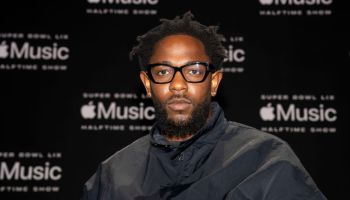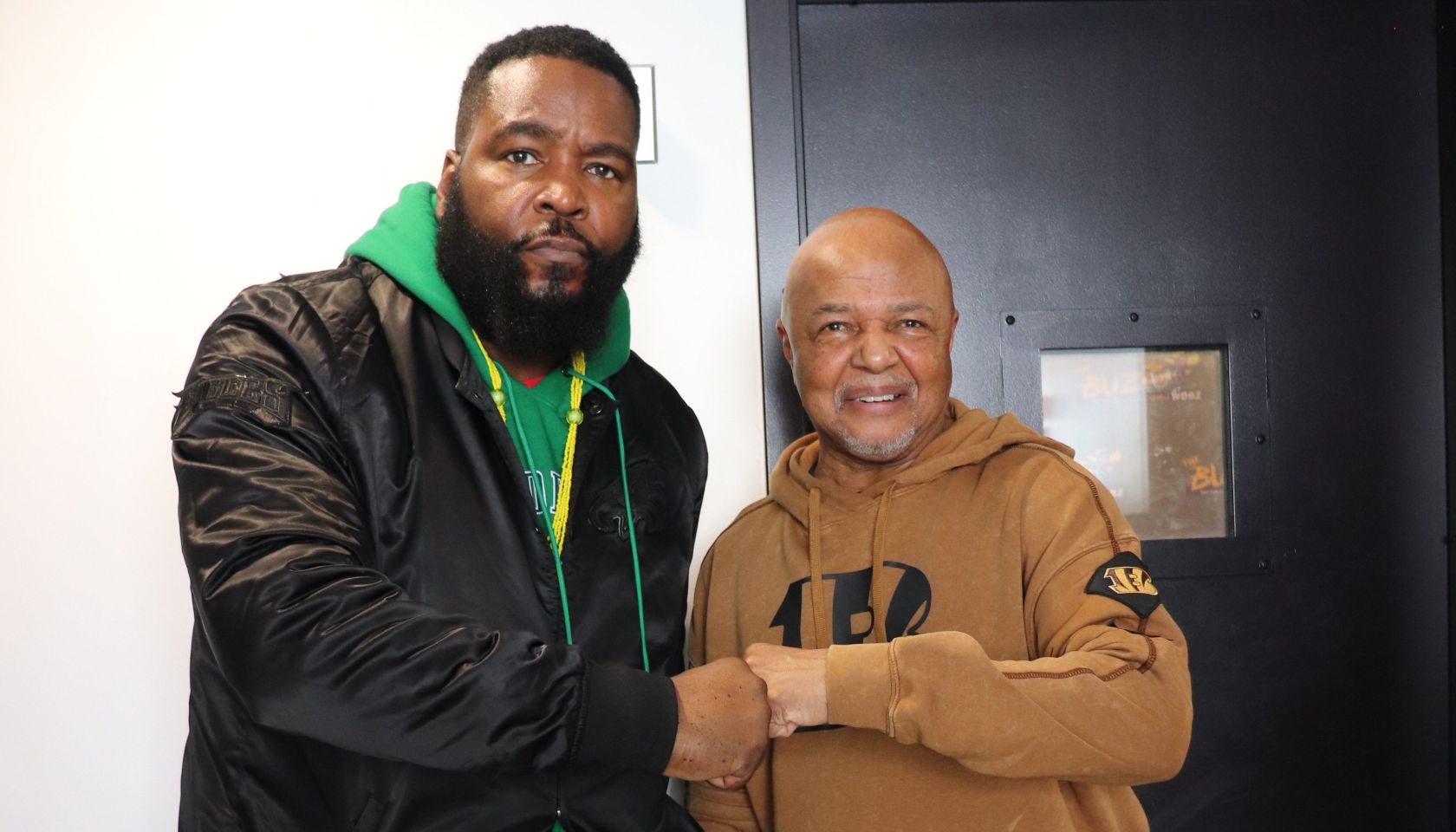There's Outrage For Jimmy Kimmel, Not For Black Journalists
The Silence Around Black Journalists’ Cancellations Makes The Jimmy Kimmel Outcry Ring Hollow

American media always tells on itself.
Lots of folks are in uproar over Jimmy Kimmel. One white man loses his late-night show, and suddenly it’s the end of free speech, the death of comedy, and the collapse of American democracy. Now that his suspension is over and he’s getting his show back, the whole saga is being spun as vindication, as proof that white voices are too essential to ever stay silenced. Funny how all that righteous outrage was mute when a long line of Black journalists lost their shows or platforms over the past several years.
The very intensity of the reaction is the story. But let’s put Black journalists, who are so often erased, back at the center of the story.
This is why Kimmel’s saga makes the hypocrisy so clear. His temporary removal was treated as an emergency for democracy. His reinstatement is framed as a victory for free speech. But where was that same urgency when Black journalists were erased for good? Their cancellations didn’t come with a countdown clock to their return, they came with the door slamming shut.
Melissa Harris-Perry, Tiffany Cross, Joy Reid, Jemele Hill, Don Lemon, Marc Lamont Hill, Karen Attiah, Amber Ruffin, and others. Their departures were met with either silence or outright hostility, and they happened in an industry already starved of Black voices.
What ties these exits together is not coincidence, but a pattern. Again and again, when media executives reshuffle lineups or chase ratings, it’s Black journalists who are first on the chopping block. When controversies arise, it’s Black journalists who get scapegoated. When budgets tighten, it’s Black journalists whose platforms vanish. And when the ax falls, there is rarely a national outcry, rarely a wave of solidarity from peers, and rarely the kind of handwringing we see now for Kimmel. And unlike Kimmel, none of them got the grace of a suspension followed by a red-carpet return.
Melissa Harris-Perry’s departure in 2016 was one of the clearest examples. Her weekend MSNBC show wasn’t just another block of pundit chatter. It was a rare space where academics, activists, and grassroots voices shaped the conversation. She covered voter suppression, Black feminism, hip-hop, and the politics of respectability in ways no one else was doing on cable news.
When executives sidelined her, she said bluntly that she refused to be a “token, mammy, or little brown bobble head.” Her words landed like a thunderclap, and then the story faded. There was no national panic about the loss of intellectual diversity, no handwringing about free speech. Just silence.
Fast forward to Tiffany Cross in 2022.
Her show, The Cross Connection, was unapologetically Black, sharp, and funny. She centered issues the rest of the media treated as afterthoughts: Black maternal mortality, voting rights rollbacks, and disinformation targeting communities of color. Despite building a loyal audience and solid ratings, MSNBC cut her loose with no farewell, no public explanation—a move that, as then–Washington Post columnist Karen Attiah observed, sent a “chilling signal” about how easily Black women’s voices can be erased.
The irony now is inescapable: Attiah herself has since been fired, becoming yet another name on the long list of Black journalists silenced or pushed out.
Last week, the Washington Post fired her over social media posts after the Charlie Kirk killing, making her the last Black full-time opinion columnist at the paper. Attiah had carved out a space for internationalist Black feminism, connecting struggles across borders. Her voice was singular and easily discarded. When she was fired, the Post lost its last full-time Black columnist and its editorial page became whiter and safer. Her departure removes a rare voice and signals a shift in editorial tone. While the story is being discussed by many on social media platforms like Substack and Facebook, a few mainstream outlets have covered it, though perhaps not with the sustained urgency her firing deserves.
These departures don’t just represent a job here and a show there. They strip away rare spaces where issues of race, democracy, inequality, and justice were being tackled head-on. And they show how uniquely disposable Black women are in media institutions.
Joy Reid has been a target for years, facing relentless right-wing campaigns to get her off the air. She survived for a time, hosting The ReidOut, but her cancellation earlier this year shows how precarious even the most high-profile Black women journalists are. Jemele Hill was suspended by ESPN for calling out Donald Trump as a white supremacist, sidelined again for her social media posts, and ultimately pushed out of ESPN.
Amber Ruffin’s late-night show was quietly dropped from Peacock in 2022, even as white male counterparts in comedy continue to get chance after chance to fail. Peacock never gave an official reason for ending the series, but industry reporting pointed to the platform’s broader retreat from original late-night programming rather than anything specific to Ruffin—making the double standard sting even more.
These women paid a price for refusing to be ornamental. They weren’t there to flatter white audiences or stick to the script. They told the truth. And in return, they were cast as “divisive,” “controversial,” or “bad for ratings.” It’s a familiar pattern: when Black women raise their voices, they get treated not as assets, but as liabilities.
This pattern extends to Black male journalists as well.
Don Lemon’s ouster from CNN in 2023was abrupt and humiliating, ending a 17-year career with little ceremony. Marc Lamont Hill lost his CNN contributor role after a single UN speech criticizing Israeli policy.
These weren’t just personal blows; they narrowed the landscape. Each cancellation removed a perspective that cut against the grain, leaving behind a thinner, whiter, safer media.
This is why the Kimmel uproar rings so hollow. Where was the outrage when these Black journalists were pushed out? Where were the op-eds about free speech when Jemele Hill was suspended? Where were the cable news debates about democracy when Karen Attiah was silenced last week?
The hypocrisy is galling. Kimmel’s removal has been framed as a referendum on free expression. But the silence around Black journalists’ cancellations tells a different story: free speech only becomes a crisis when a white man loses his microphone. When Black journalists lose theirs, it’s treated as business as usual.
That’s because America has never seen Black journalists’ voices as central to the democratic project. It has tolerated them, commodified them, or cast them as “divisive” when they told truths the mainstream didn’t want to hear.
When Melissa Harris-Perry said she wouldn’t be a “token, mammy, or bobblehead,” the network treated her refusal to be ornamental as insubordination, not principle. When Tiffany Cross highlighted Black maternal mortality and disinformation campaigns targeting our communities, executives didn’t defend her as essential to democracy; they dismissed her as a ratings risk. When Jemele Hill called out Trump’s white supremacy, ESPN punished her instead of protecting her.
When Don Lemon pressed too hard from inside CNN, his 17-year run ended with an abrupt, humiliating firing. When Marc Lamont Hill called for Palestinian freedom at the U.N., CNN erased him in a single day.
These weren’t treated as free speech issues because the dominant culture doesn’t believe Black speech is integral to the nation’s civic life. It sees it as expendable, sometimes even dangerous. This is about who gets to define reality for the nation. White men like Kimmel are treated as indispensable cultural institutions. Black journalists are treated as expendable, even threatening. The double standard is blinding.
If we are serious about defending free speech and a free press, then the loss of Black voices should have provoked national outcry. Because these journalists weren’t just filling airtime, they were reshaping conversations, pushing against the margins, and telling stories no one else was telling. Their silencing has real consequences. It means fewer stories about voter suppression, fewer voices challenging disinformation, fewer lenses on systemic injustice. It means a media landscape that is narrower, whiter, and more comfortable for the powerful to control.
So, if this moment is going to be a referendum on free speech, then let’s be honest about whose voices get protected and whose get sacrificed. If you’re crying for Kimmel but stayed silent for Cross, Harris-Perry, Reid, Hill, Ruffin, Martin, Lemon, Attiah, and so many others, then you’re not fighting for free speech; you’re fighting for white comfort. And that, more than anything, is the story being overlooked.
Kimmel will be fine. He’s a wealthy, well-connected white man who will land on his feet. Black journalists are still working, but too often they’ve been forced to rebuild from the margins—writing on Substack, teaching, launching podcasts, hustling to create platforms after losing the ones the industry denied them. What they lost were the megaphones that shape the national conversation, the visibility that white men are granted as a birthright. Their cancellations weren’t treated as national crises. They were treated as house-cleaning.
That’s the hypocrisy.
The current panic over free speech isn’t about the principle; it’s about who gets protected. When a white man like Kimmel is silenced, America cries. When Black journalists are silenced, America shrugs. And until we call that out, every tear shed for Kimmel is less about freedom and more about preserving white comfort.
Dr. Stacey Patton is an award-winning journalist and author of “Spare The Kids: Why Whupping Children Won’t Save Black America” and the forthcoming “Strung Up: The Lynching of Black Children In Jim Crow America.” Read her Substack here.
SEE ALSO:
Professor Watchlist, Karen Attiah, And The GOP War On Free Speech
Disney Announces ‘Jimmy Kimmel Live!’ Is Back, After Short-Lived ‘Indefinite’ Cancellation
The Silence Around Black Journalists’ Cancellations Makes The Jimmy Kimmel Outcry Ring Hollow was originally published on newsone.com











